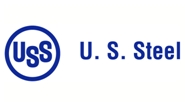Government/Policy

April 17, 2018
U.S Steel Section 337 Investigation Officially Closed
Written by Sandy Williams
The two-year Section 337 investigation brought by U.S. Steel against Chinese steel manufacturers has been officially terminated by the U.S. International Trade Commission.
All three components of the investigation—antitrust violation, transshipment, and trade secret theft—are now dissolved without action against the Chinese steel producers and distributors. According to an April 9 notice, U.S. Steel did not submit a request to the ITC to provide relief against defaulting respondents and does not plan to appeal the ITC determination.
The investigation began in May 2016 and involved steel companies in China including Baosteel. The trade secrets complaint was withdrawn last February by U.S. Steel, ITC rejected the claim of transshipment in November, and last month the antitrust claim was terminated after U.S. Steel failed to show evidence of injury.
Ran Ruixue, a partner of Covinton & Burling LLP representing Baosteel, attributed the win against U.S. Steel’s claims to confidence and persistence by Chinese steel companies. “They found the best lawyers and pleaded together,” said Ran. “They are also professional and persistent. Even when our first action against the anti-circumvention claim was rejected, we started all over again to get the proof we needed.”
U.S. Steel expressed their disappointment in a statement provided by the company:
We are disappointed by the ITC’s decision in our Section 337 case against numerous Chinese steel manufacturers and their distributors.
Our country is safer and our economy is stronger with steel that is mined, melted and made in America. From the outset of the Section 337 case, our company sought to challenge the brazen violation of our trade laws by foreign competitors. We have learned how insurmountable that obstacle is for a single company to overcome.
We are encouraged by President Trump’s Section 232 national security action. We also urge continued focus to bring our trade enforcement laws into the 21st century.
U.S. Steel remains steadfast in our commitment to promoting fair trade and will continue to use our voice in that fight.







